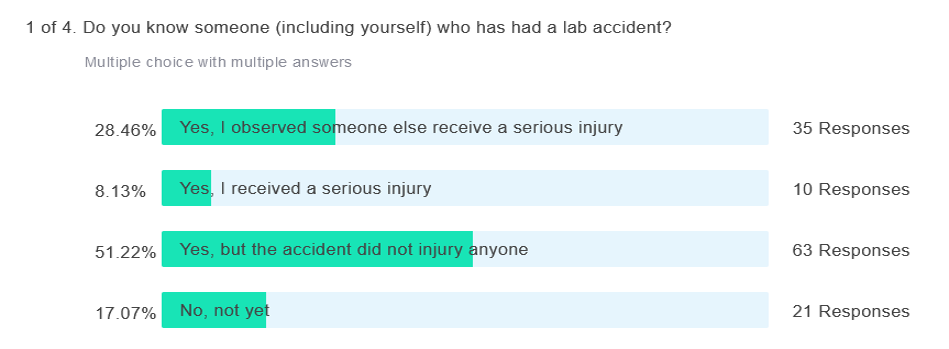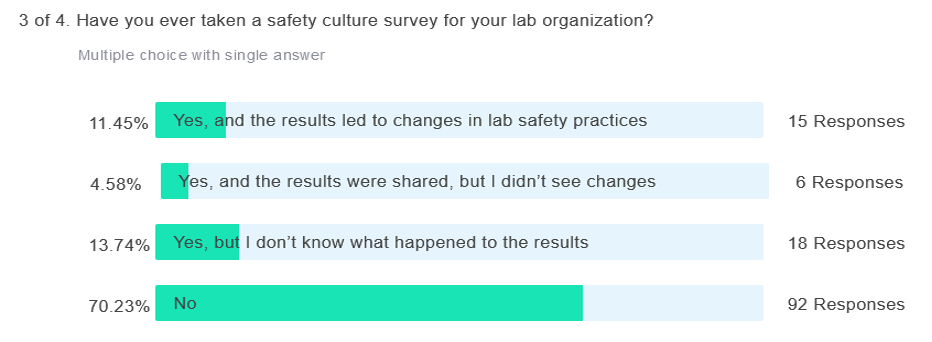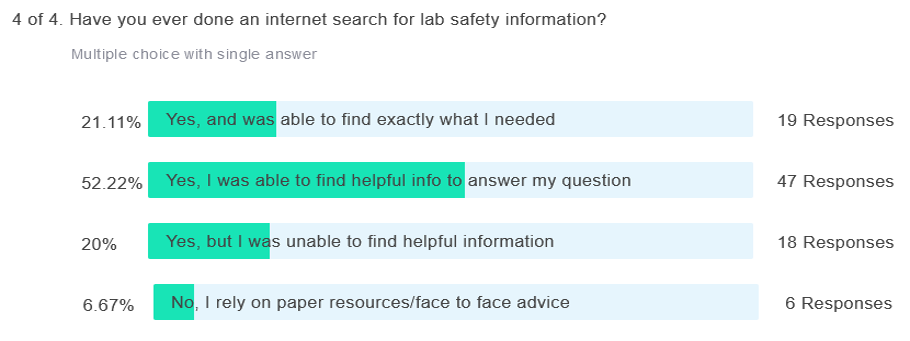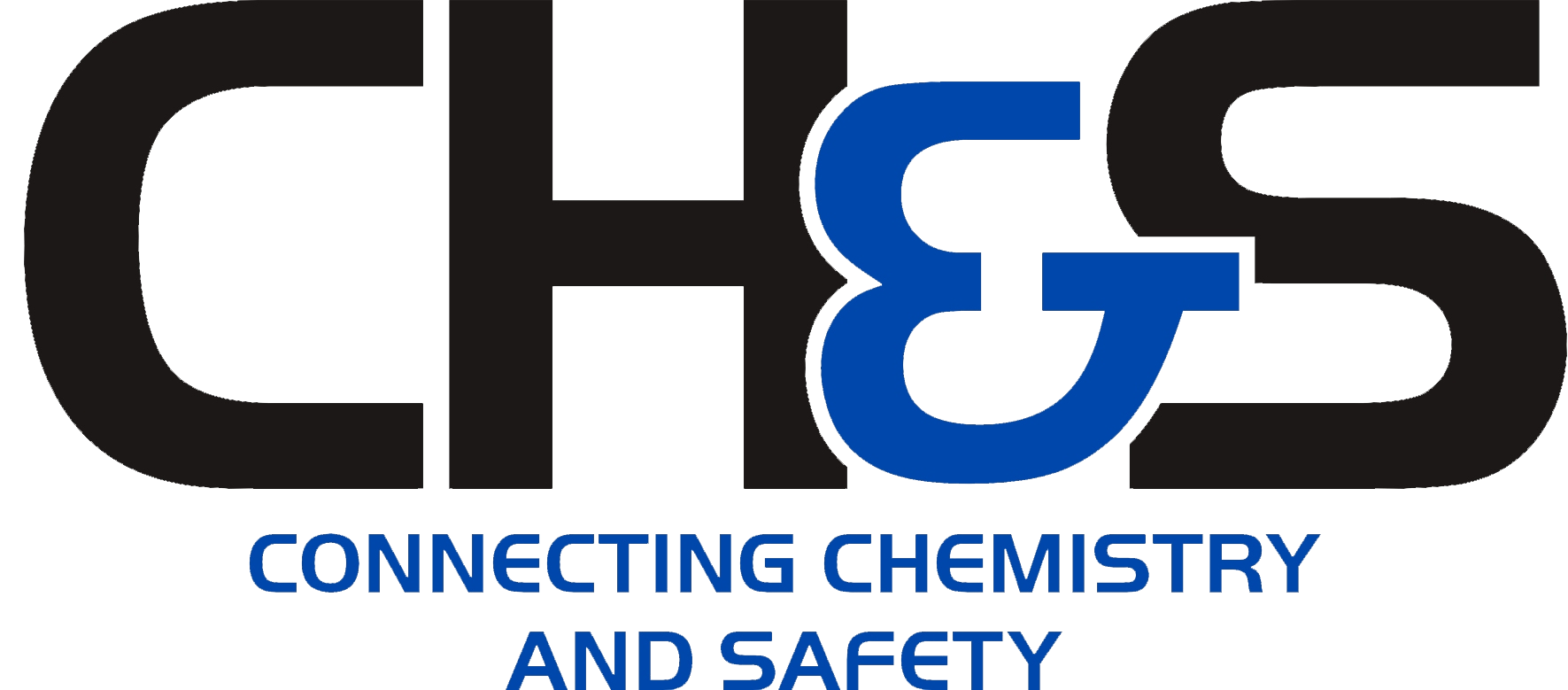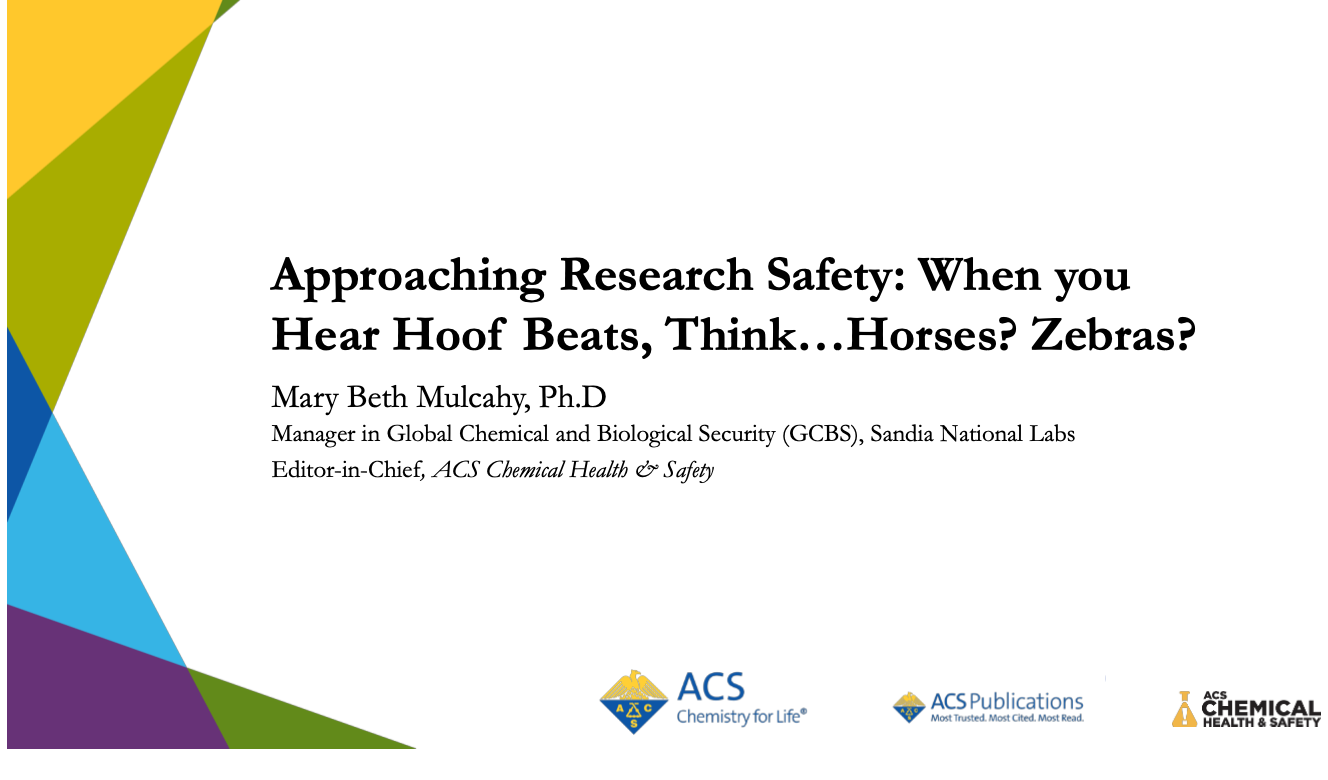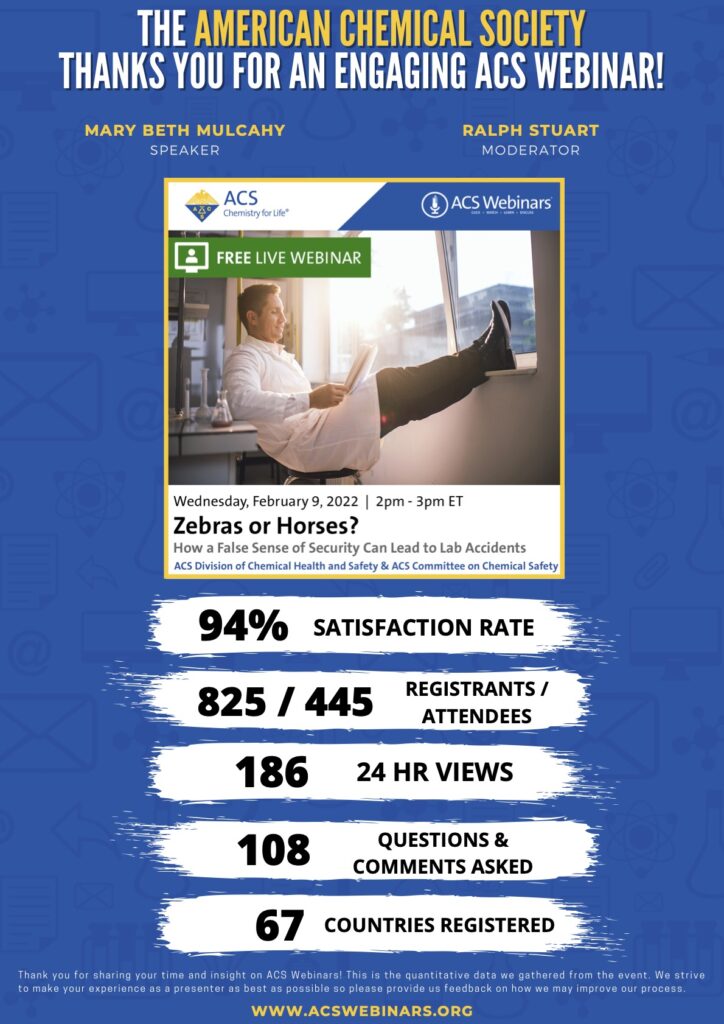On February 9, the Division sponsored an ACS webinar, given by Mary Beth Mulchahy. She earned her PhD in physical chemistry from the University of Colorado in Boulder. She is currently a manager in the Global Chemical and Biological Security Program at Sandia National Laboratories in Albuquerque, NM. Dr. Mulcahy and her Team work internationally to build and strengthen knowledge for the responsible use of chemicals.
Dr. Mulcahy also serves as the Editor-in-Chief of the American Chemical Society’s ACS Chemical Health & Safety journal which focuses on publishing high-quality articles of interest to scientists, EH&S professionals, and non-research personnel who manage or work in areas where chemicals are used or hazardous waste is generated.
“Culture eats strategy for breakfast,” was a quote shared in the recent ACS webinar, “Zebras or Horses? How a False Sense of Security Can Lead to Lab Accidents.” In her presentation, Mary Beth Mulcahy, editor-in-chief of the journal, ACS Chemical Health & Safety, and former CSB accident investigator, illustrated this relationship between culture and strategy using CSB findings from accident investigations atConAgra, Texas Tech, and the Deepwater Horizon. She showed how these accidents came about in part due to the differences between what was written as policies and procedures and what was done in practice. Steering a culture of safety in a fruitful direction can, thus, be achieved by recognizing and accommodating these conflicts between theory and implementation.
Dr. Mulcahy also pointed out that safety culture does not stand apart from an organization’s culture as a whole, that what is valued in a subsection will also be what is valued overall. And while learning from mistakes is essential, as was demonstrated in the webinar, developing a work culture that proactively supports safe practice is equally important.
Admittedly, there is no one size fits all with regard to the practicalities of a successful safety culture, as was pointed out by Terry Mathis in his recent EHS Today article, “The Laboratory for Testing Safety Efforts” , but one universal place to start can be the realm of psychological safety. Defined as “the belief that you won’t be punished or humiliated for speaking up with ideas, questions, concerns, or mistakes,” in the recent article from the Center for Creative Leadership, titled “What is Psychological Safety at Work?” psychological safety facilitates the empowerment and transparency that are the bedrock of a culture of safety. Being able to give and receive feedback, raise concerns, disagree, ask for help and clarification, ask difficult questions, offer solutions, and admit to errors are all essential to maintaining healthy working conditions, both physically and psychologically. Figuring out how to prioritize these will require a custom fit for each organization, but consideration and discussion of the practices is a good place to begin.
The Presentation
You can find the recording of the webinar at https://www.acs.org/content/acs/en/acs-webinars/professional-development/false-security.html
Audience Poll Questions
